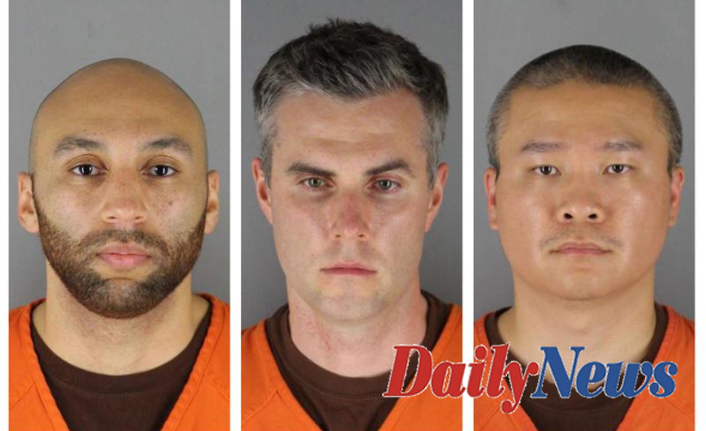Tou Thao, Thomas Lane, and J. Kueng are all accused of depriving Floyd his civil rights while they were acting under the authority of the government. They are also charged with aiding in the execution of murder and manslaughter.
Experts predict that the federal trial will prove more difficult than the state trial scheduled for June 13 because the prosecutors in this case will have to prove Floyd's constitutional rights were violated -- unreasonably seizing Floyd and denying him liberty without due process.
"In the state case they are charged with what happened. They aided Chauvin in any way. They are charged in federal court with the things they did not do. This is an important distinction. It's a completely different type of accountability," stated Mark Osler, an ex-federal prosecutor and professor at University of St. Thomas School of Law.
Phil Turner, another ex-federal prosecutor, stated that prosecutors should show that the officers had done something to stop Chauvin rather than showing they did something to Floyd.
The questionnaire has been completed by potential jurors. They will be brought to a federal courtroom at St. Paul on Thursday. U.S. District Judge Paul Magnuson, will then question them in groups. This process will continue until the 40th group is selected. Each side will then have the opportunity to challenge other jurors. The jury will select 18 jurors, 12 of whom will deliberate, and six alternates.
Magnuson stated that he believed the process could be completed in two days. This was contrary to the state trial of Chauvin where each juror was questioned individually by the judge and attorneys and then spent over two weeks selecting a panel.
Floyd, 46, was killed by Chauvin after he pinned Floyd to the ground and placed his knee on Floyd's neck. Floyd was then facedown, handcuffed, and gasping for air. Kueng placed his back on Floyd's and Lane held his legs down. Thao prevented bystanders from interfering.
Chauvin was convicted of murder and manslaughter in April and is currently serving a 22 1/2-year sentence. He pleaded guilty in December to a federal charge of violating Floyd’s rights.
Officers involved in on-duty murders are rarely subject to federal prosecution. The legal standard for proving that an officer has willfully deposed someone's constitutional rights is very high. An accident, poor judgment, or negligence are not sufficient to support federal charges.
Prosecutors must show that officers knew they were wrong but still did it.
Kueng, Lane, and Thao were all accused of willfully depriving Floyd the right to be freed from an officer's indifference to Floyd's medical needs. According to the indictment, Floyd required medical attention and the men failed to provide it.
Thao and Kueng were also charged with a second charge alleging that they willfully violated Floyd’s right to be free of unreasonable seizure. They failed to stop Chauvin while he knelt down on Floyd's neck. Although Lane isn't mentioned in this count, evidence suggests that he twice asked Floyd if he should roll on his side.
Both charges allege that Floyd was killed by the officers.
Federal civil rights violations that lead to death can be punished by up to life imprisonment or death. However, those harsh sentences are very rare and federal sentencing guidelines rely upon complicated formulas that indicate that the officers will get much less if they are convicted.
"This trial will be an evolutionary step beyond the Chauvin trial. We're not looking for the killer but the people who enable him to kill. Osler stated that this brings us closer to the culture in the department.












